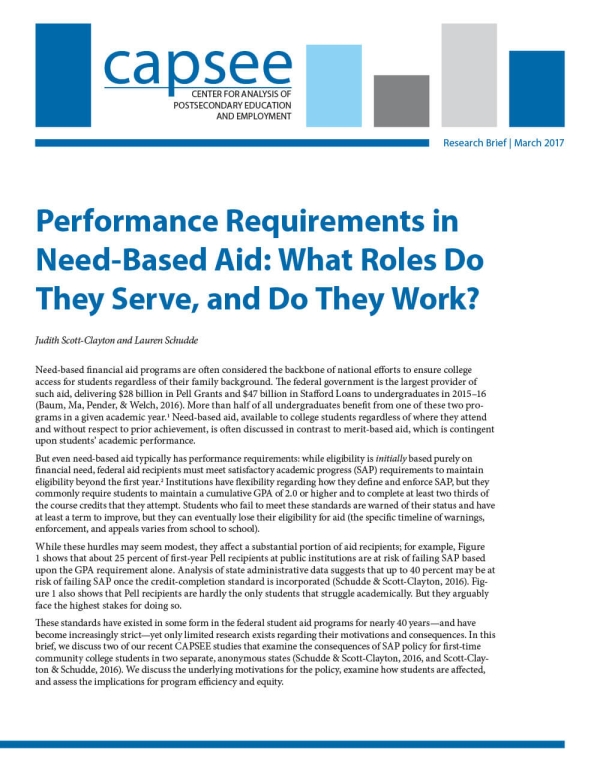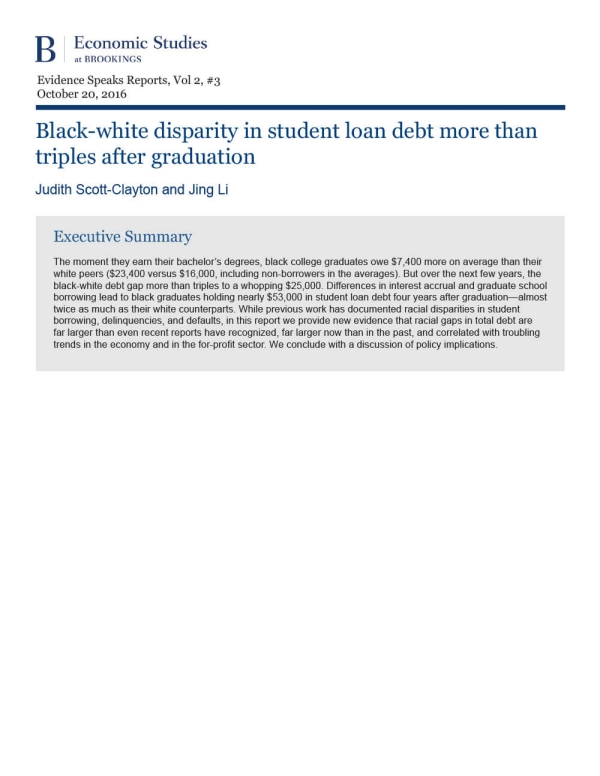Performance Requirements in Need-Based Aid: What Roles Do They Serve, and Do They Work?

Based on recent CAPSEE studies in two states, this brief discusses the motivations for satisfactory academic progress requirements for federal aid, examines how community college students are affected, and assesses the implications for program efficiency and equity.
Does the Federal Work-Study Program Really Work—and for Whom?

This brief discusses current research, including CAPSEE analysis, regarding both the effectiveness of the Federal Work-Study (FWS) program and its equity in terms of the distribution of funds.
The Impact of Pell Grant Eligibility on Community College Students’ Financial Aid Packages, Labor Supply, and Academic Outcomes

Using an administrative data set from one state, this paper examines the effects of receiving a modest Pell Grant on financial aid packages, labor supply while in school, and academic outcomes for community college students.
Pell Grants as Performance-Based Aid? An Examination of Satisfactory Academic Progress Requirements in the Nation’s Largest Need-Based Aid Program

This CAPSEE working paper examines the prevalence and consequences of Pell Grant recipients’ failure to meet the standards for satisfactory academic progress required for grant renewal.
Black-White Disparity in Student Loan Debt More Than Triples After Graduation

In this report for Brookings, Judith Scott-Clayton lays out a new analysis that shows that the gap in student debt between Black and White bachelor’s degree earners triples in the four years after graduation.
